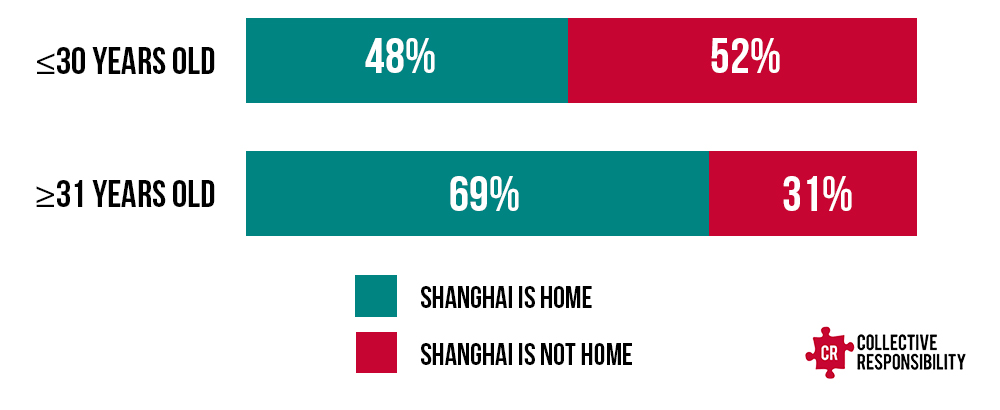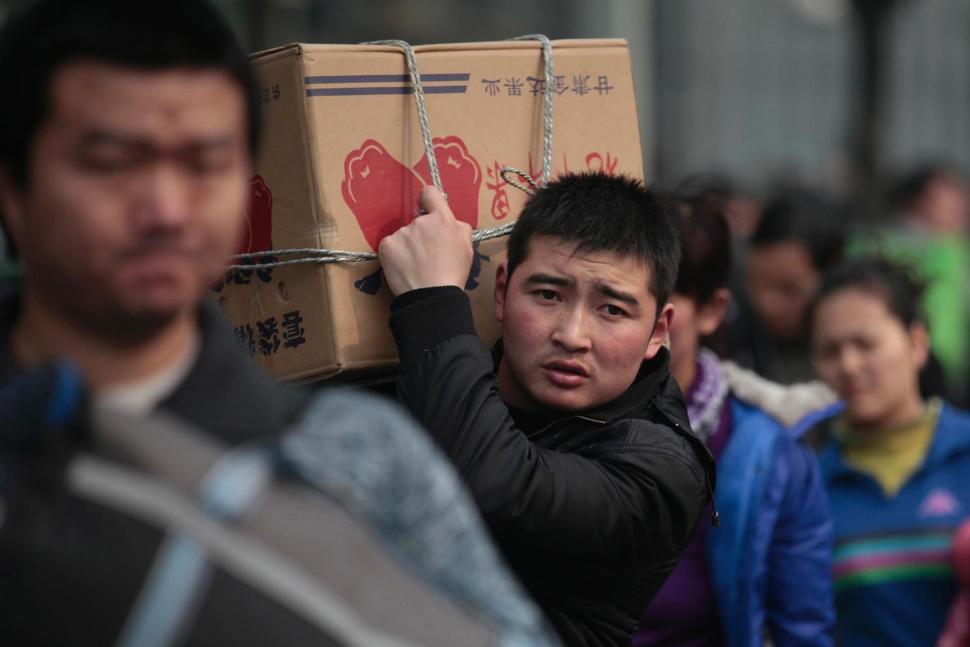This latest installment in our “Hope and Opportunity” article series, and last week’s piece on Rat Tribes and Ant hills, we take a look at why young migrant workers are still drawn to Shanghai.
Understanding Shanghai’s Young Migrant Workers
Young migrant workers born in the 1980s and 1990s now make up 60% of the total migrant population in China. Compared to their parents, the younger generation of migrants don’t do farm work, are better educated, and have higher career expectations.
Yet statistics show that young migrant workers are losing interests in big cities: in 2014, the number of migrant workers between 16 and 20 years old dropped by over 14 million compared to 2008 figures.
In 2016, we released the Hope and Opportunity report, where we explored the types of migrants coming to Shanghai, their motivations, the challenges they face, as well as the social and economic impacts they have now and into the future. Earlier this year, we revisited the Shanghai Railway Station and Shanghai South Railway Station to survey 220 migrant workers who were leaving Shanghai for the Chinese New Year (CNY).
We spoke to blue-collar migrants only, among whom 27% are below the age of 30. Here are the three questions we asked, and a breakdown of the responses divided by age.
Question 1: “Are you returning to Shanghai after CNY?”

Young migrant workers are not as passionate or sure about returning to Shanghai after CNY. When asked why, most said no good job opportunities was the top reason.
“I’m not coming back to Shanghai after CNY. I’m not sure where my next stop is, but I’m only 25 years old. There is so much of the world to see.” – A young man from Henan
When asked what is a good job to them, young migrant workers would emphasize the potential of personal growth, whereas the older generation care more about immediate salaries.
“I will not change jobs if the factory is willing to help me develop my skills.” – A young man from Jiangxi
Question 2: “Do you consider Shanghai home?”

While 69% of the older generation would consider Shanghai home, only 48% of the younger ones think the same, and many said it was because they didn’t feel a “sense of belonging”.
Unlike their parents who came to cities to just make money, young migrant workers have much stronger desire to integrate with local communities, and would feel frustrated if they are not able to.
“I do not have any family here. I don’t feel I belong here, and I miss my parents so much.” – A young lady from Hunan
Question 3: “Are you settling down in Shanghai in the long run?”

Young migrant workers have less interest in settling down in Shanghai in the long term.
When asked where they would go instead, almost all the older interviewees chose their hometown, while about 30% of the younger ones would like to go to other cities. Many would choose provincial capitals like Chengdu and Wuhan, due to the lower living costs, shorter distance from hometown and similarity of culture, in comparison with megacities like Shanghai and Beijing.
“It’s better to work in small city if I only have a 6000 yuan/month salary. I plan to work in other cities to find opportunity to have my own business one day.” – A young man from Jiangxi

It is obvious that the younger generation of migrant works are pursuing very different things in big cities compared to their parents. They are looking for jobs where they feel inspired and can learn and grow, and are less willing to take the ones that involve dirty work, are far from home and offer no vacation for visiting parents.
While this is challenging for many employers, as they must adjust the current management structure and invest more on recruitment, this could also be an opportunity: Employers who can meet such needs will attract more skilled, capable young workers who show more commitment to the company.
For more information about China’s migration phenomenon, check out our articles under the Migration tag, along with our Hope and Opportunity and Labor Reports. Follow Collective on social media to receive updates on upcoming articles, reports, videos, and events.
